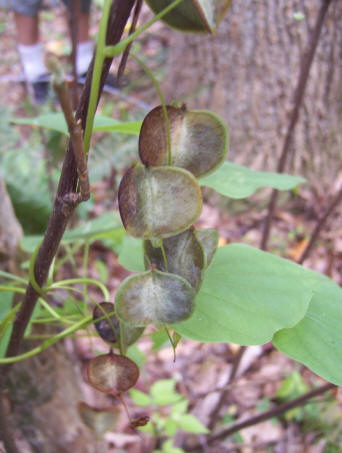Nutrition
 ACQUISITION
ACQUISITION
The wild yam acquires its nutrients from two main sources. The
mycorrhizal relationship with fungi allows for roots to take in
nutrients and water as efficiently as possible. This is
discussed again in more detail on the interaction page. Yams
also go through photosynthesis to produce sugars. In very basic
terms, photosynthesis is the conversion of light energy to the
chemical energy that is ATP made from sugars. The sugars are
made from a chemical reaction that takes light, carbon-dioxide,
and water to create oxygen and sugar (glucose).
STORAGE
Glucose created in photosynthesis is made in vast excess. The extra
glucose is converted into sucrose which is then transported through
the phloem to a tuberous rhizome (root) underground. The rhizome is
essential for the survival of Dioscorea villosa L. throughout the
winters it experiences. This ability to use the sucrose from the
rhizome allows the wild yam to be a perennial plant that lives
longer than one year.
Previous Page ---- Home ---- Next Page
